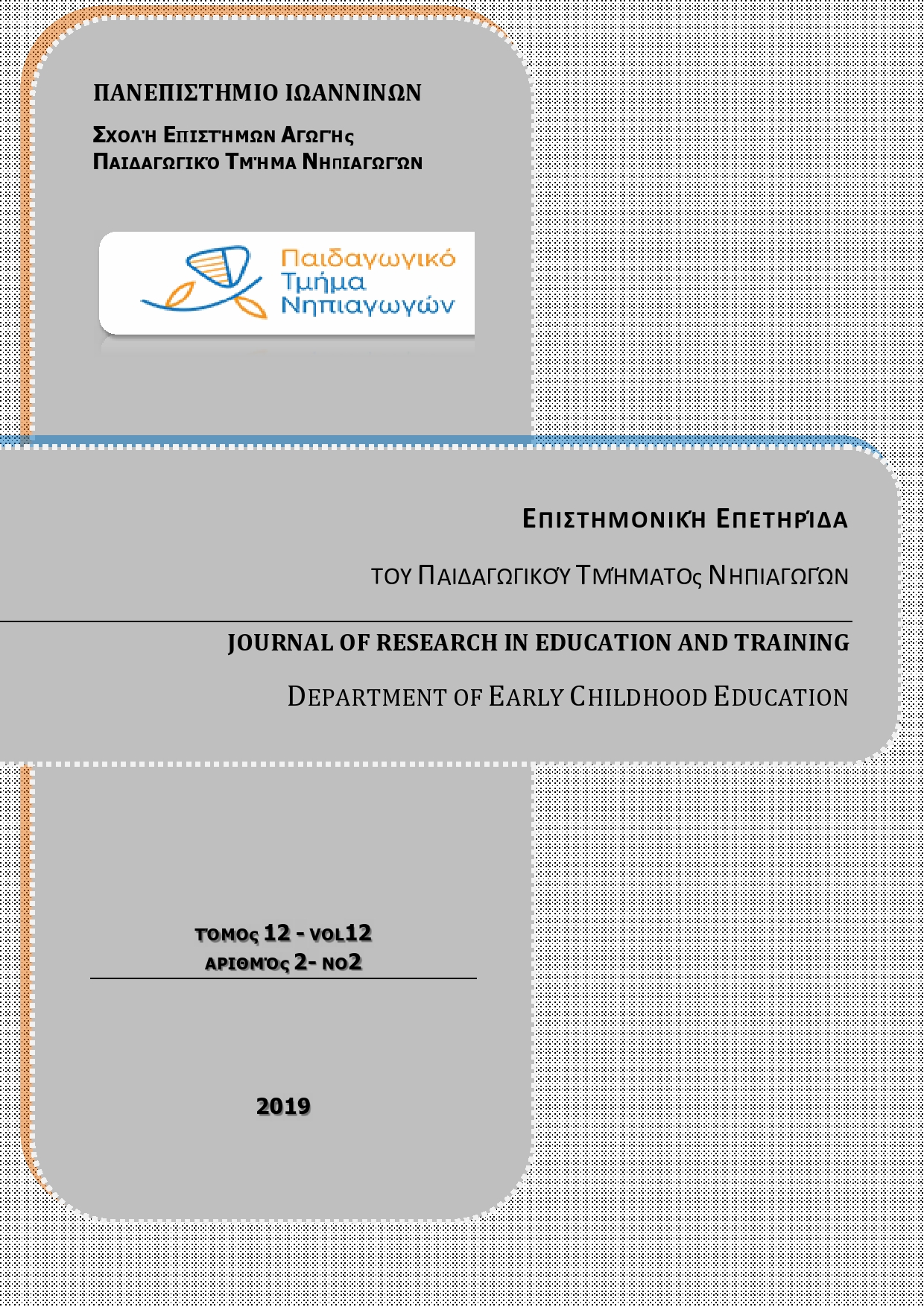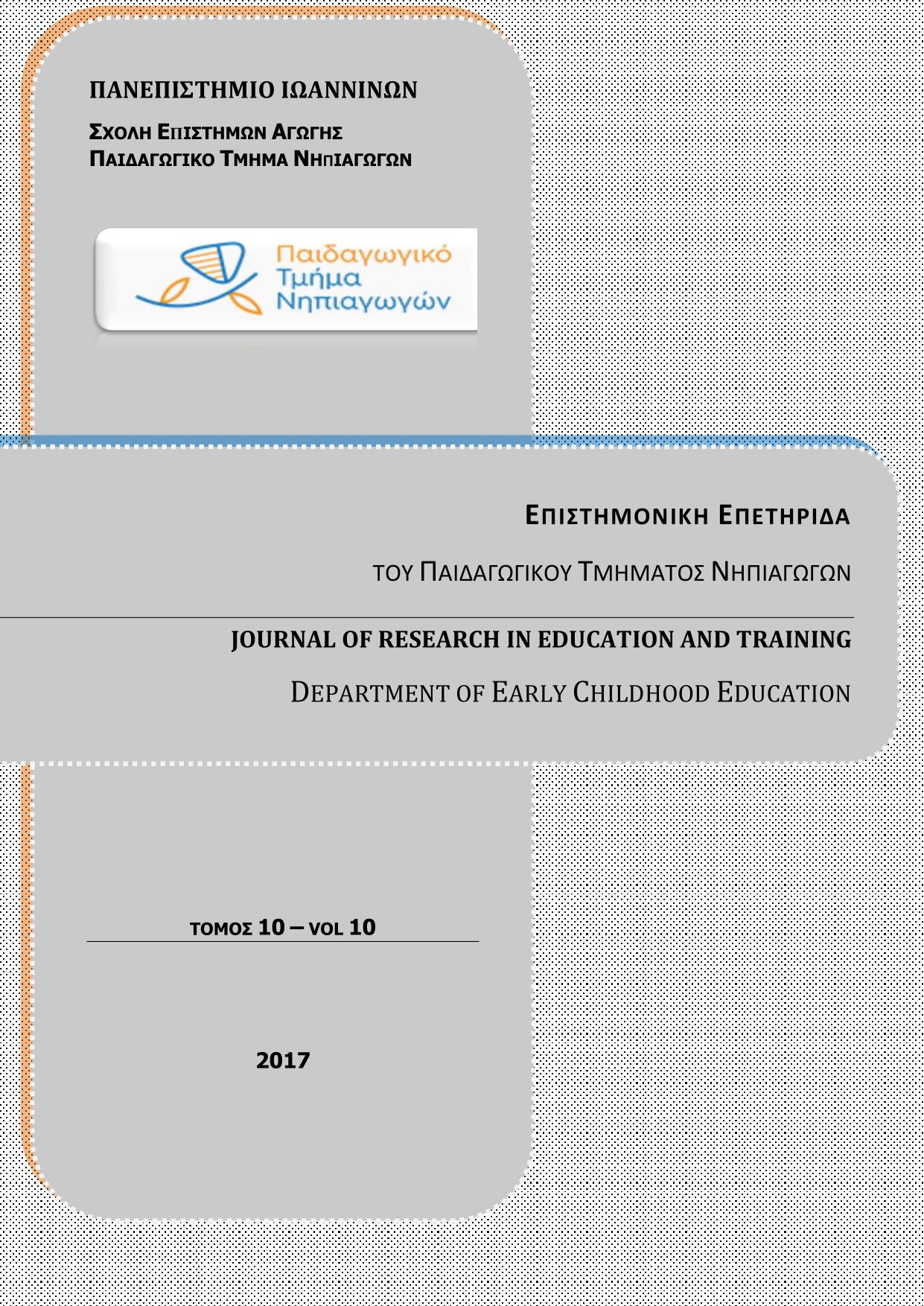The neuropsychological profile and the enhancement of the reading comprehension of students with dyslexia through cognitive and metacognitive strategies effective school interventions at the age of 11 up to 12 years old

Abstract
Τhe present paper aims at an updated description of the cognitive and metacognitive linguistic profile of students with dyslexia aged 11-12 years old, as well as of the effective interventional school programs for the amelioration of their reading comprehension through the acquisition of corresponding cognitive and metacognitive strategies. Following a systematic bibliographic search, a total of 21 studies in English language published in the period 2010-2017 are reviewed, 9 in the first part of the paper (children’s neuropsychological profile) and 12 in the second (effective school interventions). According to the findings of the studies, the linguistic profile of students with dyslexia of this age group is characterized, inter alia, by deficits in memory, in executive functions, in reading fluency and in a range of cognitive and metacognitive strategies for text processing and comprehension, leading to children’s limited reading comprehension and low overall school performance. In response to the abovementioned difficulties of students, differentiated, individualized, and peer-mediated interventions have been conducted, along with technology-assisted programs. In the approaches, explicit or direct instruction and/ or modelling was implemented, by majority in children’s plenary classes. In all the interventions, a fluctuating improvement of trainees’ reading comprehension was noted. At the same time, an increase in the reading fluency of students and the promotion of a set of their socio-emotional skills were found, in relation to specific intrapersonal characteristics. Afterwards, the reviewed studies are critically approached, taking into consideration their limitations as well as the multifactorial and multi-level nature of the investigated skills of their participants. Lastly, a set of suggestions for future research is formulated, aiming at individuals’ customized, comprehensive, long-term and inclusive support.
Article Details
- How to Cite
-
Moutsinas, G., Ntziavida, A., & Machia, A. (2019). The neuropsychological profile and the enhancement of the reading comprehension of students with dyslexia through cognitive and metacognitive strategies: effective school interventions at the age of 11 up to 12 years old. Journal of Research in Education and Training, 12(2), 26–116. https://doi.org/10.12681/jret.19000
- Issue
- Vol. 12 No. 2 (2019)
- Section
- Articles

This work is licensed under a Creative Commons Attribution-NonCommercial-ShareAlike 4.0 International License.
Authors who publish with this journal agree to the following terms:
- Authors retain copyright and grant the journal right of first publication with the work simultaneously licensed under a Creative Commons Attribution Non-Commercial License that allows others to share the work with an acknowledgement of the work's authorship and initial publication in this journal.
- Authors are able to enter into separate, additional contractual arrangements for the non-exclusive distribution of the journal's published version of the work (e.g. post it to an institutional repository or publish it in a book), with an acknowledgement of its initial publication in this journal.
- Authors are permitted and encouraged to post their work online (preferably in institutional repositories or on their website) prior to and during the submission process, as it can lead to productive exchanges, as well as earlier and greater citation of published work (See The Effect of Open Access).



